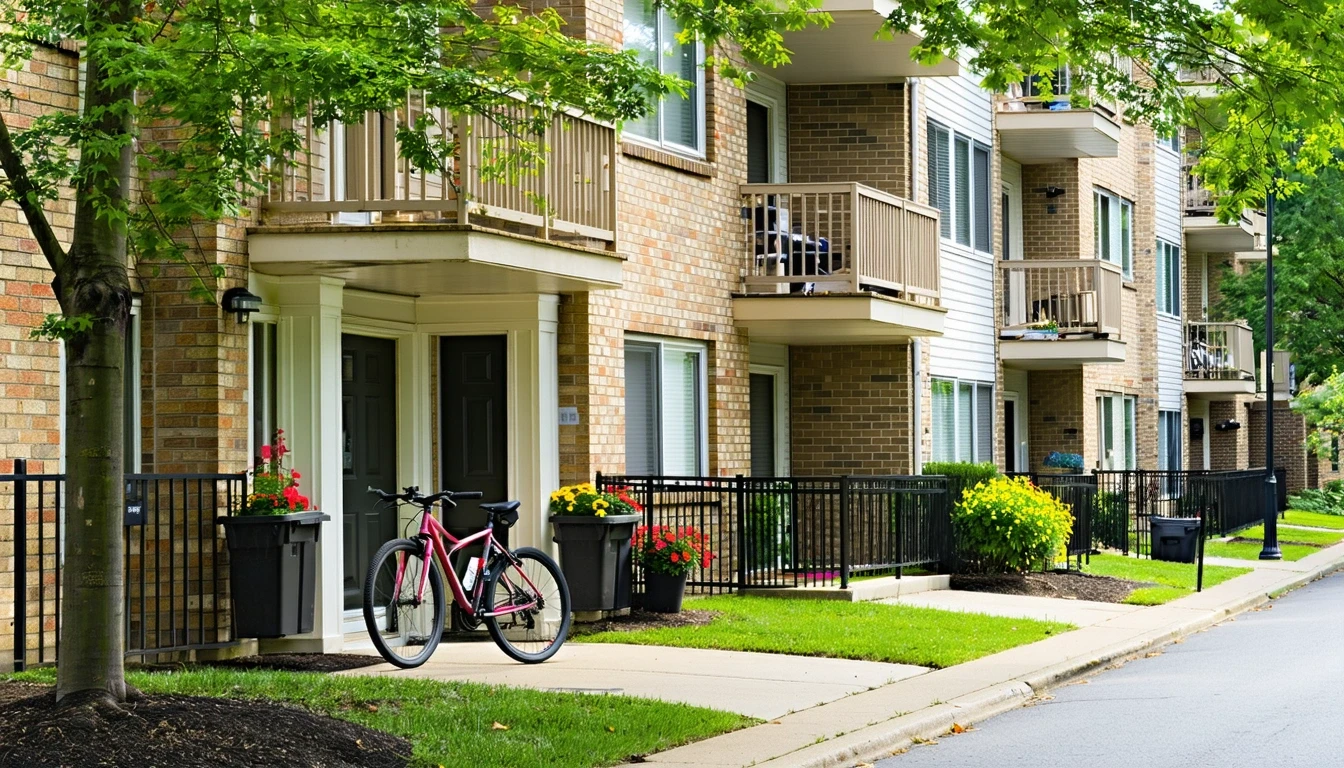Rockville, MD vs. Germantown, MD: Cost of Living Comparison (2025)
For families and professionals considering a move to the Washington, D.C. area in 2025, the choice often comes down to two popular Montgomery County suburbs: Rockville and Germantown. While both offer a high quality of life within commuting distance of the nation’s capital, there are notable differences in housing costs, taxes, and overall affordability that can sway the decision.
To illustrate these tradeoffs, let’s follow the fictional Smith family as they weigh the pros and cons of each city through a cost of living lens. John and Sarah Smith, along with their two school-age children, are relocating from the Midwest for John’s new job in Bethesda. They’re seeking a safe, family-friendly community with good schools and amenities, all while staying within a reasonable budget. As they compare expenses in Rockville and Germantown, the cost differences start to add up.

Housing Costs: Rockville’s Premium vs. Germantown’s Value
Housing is the biggest line item in the Smiths’ budget, and they quickly discover that Rockville commands higher prices for its proximity to D.C. and the Beltway. For a typical 3-bedroom single-family home, the median sale price in Rockville hovers around $600,000 as of 2025. Renting a 2-bedroom apartment averages $2,400 per month.
In contrast, Germantown’s housing costs are more affordable, with 3-bedroom homes selling for a median of $450,000 and 2-bedroom rentals averaging $1,900 monthly. The tradeoff is a longer commute for John, but the lower mortgage or rent could offset transportation costs.
| Housing Type | Rockville | Germantown |
|---|---|---|
| Median Home Price (3BR) | $600,000 | $450,000 |
| Average Rent (2BR) | $2,400 | $1,900 |
For a family of four like the Smiths, the extra space of a single-family home is appealing. Germantown’s lower prices could save them $150,000 on a purchase or $500 per month on rent compared to Rockville. However, young professionals prioritizing location and amenities may prefer Rockville’s pricier but more central apartments and townhomes.
Winner: Germantown offers better overall housing value for families and budget-conscious buyers in 2025.
Utilities and Energy Costs

Utility costs are comparable between the two cities, with both served by Pepco for electricity and Washington Gas for heating. Typical monthly bills for a family of four range from $200-300 depending on home size, age, and season.
One advantage of Germantown’s newer housing stock is slightly better energy efficiency, which can trim costs during cold winters and hot summers. However, Rockville residents can often walk or bike to errands, using less gas.
With little difference in baseline utility pricing, the Smiths would likely spend similar amounts in either city, with habits and home type being the biggest variables.
Winner: Tie, as utility and energy costs are very close between Rockville and Germantown.
Groceries and Daily Expenses
Both Rockville and Germantown have a mix of grocery options, from major chains like Giant and Safeway to specialty markets and international stores. Prices for staples are comparable, though Rockville’s closer-in location means slightly higher costs at some retailers.
For a family of four, a typical monthly grocery bill ranges from $800-1,000 in Rockville. In Germantown, the Smiths could shave about 5% off that total by shopping at more suburban stores. Dining out is also a bit pricier in Rockville, with entrees at casual restaurants averaging $15-20 vs. $12-18 in Germantown.
Over time, Germantown’s lower food costs can add up, especially for larger families. However, Rockville’s walkable neighborhoods and variety of ethnic markets may be worth a small premium for some.
Winner: Germantown has the edge on groceries and daily expenses, with prices trending 5-10% lower than Rockville.
Taxes and Fees
As part of Montgomery County, both Rockville and Germantown share the same property tax rate of $0.9912 per $100 of assessed value (as of 2025). For a median-priced home, annual property taxes would be about $5,947 in Rockville vs. $4,460 in Germantown.
Maryland’s state income tax ranges from 2-5.75% on top of the federal rate. Montgomery County adds an additional 3.2% local income tax. Sales tax is 6% statewide.
One notable difference is Rockville’s higher transfer and recordation taxes on home purchases, which can add thousands in closing costs. Germantown’s lower housing prices help soften this burden for buyers.
The income and sales tax rates are identical between the cities, but Germantown’s lower home values translate to long-term property tax savings for owners. The Smiths would pay nearly $1,500 less annually in Germantown.
Winner: Germantown has lower overall tax costs due to more affordable home prices.
Cost Summary: Rockville vs. Germantown (2025)
| Category | Rockville | Germantown |
|---|---|---|
| Housing (3BR home*) | $3,000 | $2,250 |
| Utilities | $250 | $230 |
| Groceries | $900 | $850 |
| Transportation | $500 | $600 |
| Taxes (property & income**) | $1,500 | $1,250 |
| Miscellaneous | $500 | $450 |
| Estimated Monthly Total | $6,650 | $5,630 |
*Mortgage payment based on 10% down, 30-year fixed at 3.5% APR. Actual costs vary by loan terms and down payment.
**Income taxes based on $150,000 gross annual household income. Figure is monthly share of annual tax burden. Property taxes based on median home price.
For the hypothetical Smith family earning $150,000 per year, living in Germantown could yield monthly savings of over $1,000 compared to Rockville. The biggest drivers are lower housing and tax expenses. Even with slightly higher transportation costs from a longer commute, Germantown offers better affordability.
However, for other household types, like young singles, the calculation may differ. Rockville’s higher costs could be justified by its central location, nightlife, and Metro access. Germantown’s relative value shines brightest for budget-conscious families.
Lifestyle Considerations
While costs are a key factor, the Smiths also consider quality of life. Rockville is a vibrant, diverse city of 70,000 with a walkable downtown, direct Metro access, and ample recreation options. Its location inside the Capital Beltway means shorter commutes and easier airport access. For Sarah’s government consulting job, this centrality is a plus.
Germantown, while more affordable, is further from D.C. in the county’s northern exurbs. Its population of 90,000 is spread across a more typically suburban layout. However, it offers larger homes, highly rated schools, and outdoor amenities like Seneca Creek State Park. The Marc train from Germantown to Union Station takes about an hour.
Lifestyle factors can influence costs in subtle ways. In Rockville, the Smiths may need one less car by using transit. Germantown’s larger yards often mean higher landscaping and maintenance bills. Rockville’s older homes may have higher utility costs than Germantown’s newer stock. These details can shift the budget.
Ultimately, the Smiths must weigh Rockville’s premium location against Germantown’s better bang for the buck. For their family’s needs and budget in 2025, Germantown likely offers the best overall value and fit.
Frequently Asked Questions
Is Rockville more affordable than Germantown in 2025?
No, Germantown is generally more affordable than Rockville for housing, groceries, and taxes. A family could save $250 or more per month living in Germantown.
Are rental prices lower in Rockville or Germantown?
Rental prices are significantly lower in Germantown. As of 2025, a typical 2-bedroom apartment averages $1,900 per month in Germantown compared to $2,400 in Rockville.
How do grocery costs compare between Rockville and Germantown?
Grocery prices are about 5-10% lower in Germantown than Rockville, due to its more suburban location and store mix. For a family of four, this can save $50-100 per month.
Are property taxes higher in Germantown than in Rockville?
No, property tax rates are identical between the two cities since they are both in Montgomery County. However, Germantown’s lower home prices translate to lower annual tax bills for a similar property.
What is the average monthly cost of living for a family of four in Rockville vs. Germantown?
As of 2025, a family of four can expect to spend around $6,650 per month living in Rockville compared to $5,630 in Germantown. This assumes a 3-bedroom home, two cars, and a gross income of $150,000. Actual budgets will vary.
Conclusion
Rockville and Germantown both offer a high quality of life in the D.C. metro area, but there are clear cost differences between the two Montgomery County neighbors. For the budget-conscious Smith family, Germantown’s lower housing, grocery, and tax costs make it the more affordable choice in 2025, with potential savings of $1,000 or more per month compared to Rockville.
However, Rockville’s premium location, walkability, and amenities may be worth the higher costs for some households, especially young professionals who value a shorter commute and urban perks. Lifestyle fit is key. To dive deeper into the monthly expenses and tradeoffs for each city, check out our [Sample Monthly Budgets for Rockville in 2025](/rockville-md/monthly-budget/) and full [Cost of Living in Rockville, MD: What You’ll Really Spend in 2025](/rockville-md/cost-overview/).
No matter which city the Smiths choose, one constant will be moving costs. Researching options like [Pods vs trucks: which move is best for you?](https://indexyard.com/best-moving-companies-guide/) can help any family make a smoother, more affordable transition in 2025 and beyond.
